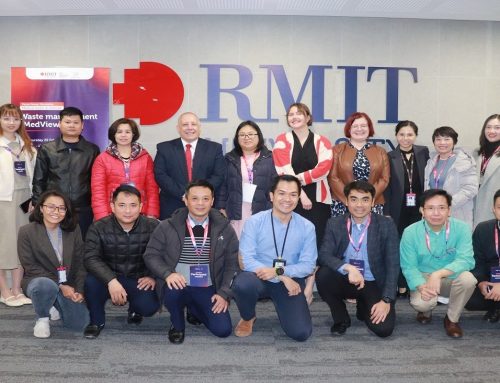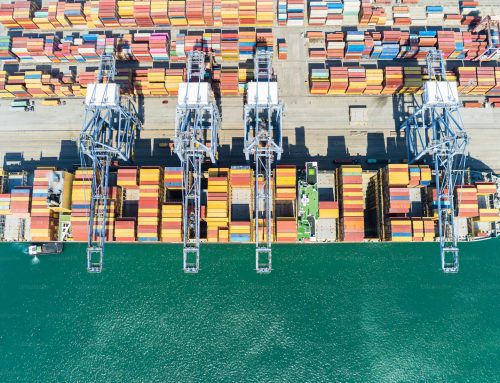6.7.2022
By Dr. Bashar Khoury
Humanitarian logistician with Syrian Operations

Humanitarian logistics in the construction logistics sector, or Humanitarian Construction Logistics (HCL), comprises the planning, the coordination, and the supervision of material flow to, within, and from construction-sites. The Humanitarian Construction Logistics (HCL) approach aims to promote the benefits of good logistics and supply chain management for humanitarian-purposes construction, recovery, and rehabilitation projects which save time and construction costs.
According to UNICEF, since the conflict escalated, families have been sheltering underground, cut off from basic services. Hospitals and maternity wards have moved their patient to basements. Across the country, hundreds of thousands of people are without safe drinking water due to damage to water system infrastructure. The country is running low on critical medical supplies and has had to halt urgent efforts to curb a polio outbreak.
The humanitarian organizations started accordingly with activities of Humanitarian Construction Logistics (HCL), which are originally the humanitarian logistics services aiming to serve non-profit/humanitarian-purposes constructions. It aims to provide more durable sheltering alternatives, in despite of delays associated with the procurement and transportation of items across the borders which causes delays of shelter projects and NFI distributions as well as low-quality of materials.
This article will explain why unrestricted cash for humanitarian construction logistics functions will be better, as the author, Bashar Khoury, has been working in Syrian humanitarian operations since 2013 till now.
The humanitarian organizations, included UNICEF, are working around the clock, preparing to scale up operations as shelter and infrastructure needs are huge and partners collectively could not have the capacity to meet all the needs. Based on Syrian humanitarian case study, the Ukrainian Humanitarian Construction Logistics could impact negatively by low volume of unrestricted cash as summarized below:
Security concerns impeding access or regular access to areas of need, therefore, Ukrainian Humanitarian Construction Logistics could base on the most-likely scenarios and updated continuously based on the context analysis. The humanitarian organizations will need unrestricted cash; instead of in-kind donations; to support the specific needs of local partners to access to high-risk areas and responded to the suddenness and unpredictability of displacements following these tensions.
Unsuitable European markets have led to an increase in costs as some materials, like fuel and gas, were not available in local markets and had to be imported. Therefore, unrestricted cash will cover the increased costs in logistics functions like the procurement and transportation of materials to Ukraine.
The current humanitarian projects are very small in scale compared to the needs in Ukraine and neighborhood countries. That has led to losing logistics capacity without any clear results and affecting on quality. Therefore, unrestricted cash could increase the scale and the quality of humanitarian projects that serve refugees and host communities.
The limited budget, assets and resources allocated for sheltering and other activities, which may result in many households being dropped from the beneficiary list and using temporary unsustainable shelters. Therefore, unrestricted cash will encourage humanitarian organizations to use transitional or upgraded solutions.
Due to the surrounding war, it is difficult to conduct proper monitoring and inspection on the humanitarian works’ quality. The high quality of the interventions was ensured through independent monitors who were contracted to verify the implementation and conduct site visits throughout the duration of humanitarian construction projects, Therefore, unrestricted cash will cover increased logistics and operational costs.
Information flows between teams from the shelter, WASH, and other teams were challenging at the beginning, which caused confusion during the implementation. Instead, all assessments should have been undertaken and shared at once, to save time, save logistics services, and avoid multiple visits to same locations. The unrestricted cash could support this approach by recruiting professional teams and commercial entities instead of volunteers.
Foreseen Benefits of unrestricted cash for Humanitarian Construction Logistics (HCL)
Availability of unrestricted cash encourages to use local materials, labor, and even refugees to implement humanitarian activities especially constructions. As a result, that support the local economy through providing new income opportunities and improving the status of local vendors, labor, and refugees by creating job opportunities and build capacities, as well as revitalize local markets.
Availability of unrestricted cash encourages the humanitarian logisticians to plan operations since initial stages to make the intended settlements as transitional so they could be dismantled or reused after the conflict. For instance, these settlements could be occupied by the local communities or converted to other uses, such as tourist resorts.
Availability of unsolicited cash encourages logisticians and technicians to put more efforts to define of common standard for future recovery works, harmonizing interventions and providing more equitable support to affected populations.
Availability of unrestricted cash encourages the developing processes of common database between shelter, WASH and humanitarian logistics teams would have improved the communication flow and documentation during logistics operations. Furthermore, remote management is supported by very clear information management systems and lines of communication. Therefore, unrestricted cash will lead to more availability of information to support the monitoring and verification of activities.
Availability of unrestricted cash enhance the Humanitarian Construction Logistics (HCL) through the stages of planning, designing, and implementation of constructions for Ukraine response by developing the relationship with multidisciplinary sectors like shelter, WASH, rehabilitation, cash, voucher, prefabrications, sustainability …etc. For example, promoting concepts within Humanitarian Construction Logistics (HCL), like material logistics planning (MLP), BIM, blockchain, GIS, RFID, eco-design, and others for efficient humanitarian aids delivery.
Availability of unrestricted cash enhance the Humanitarian Construction Logistics (HCL) to incorporate sustainable environmental practices within Ukraine response as a route to improve the people, communities, and economies in Europe.
Bashar Khoury is a humanitarian logistician. He has been working in Syrian humanitarian operations since 2013 until now. Before that, he has worked as logistician in many international companies in terms of freight forwarding, courier, and container terminal management.
Bashar has PhD in humanitarian construction logistics from Selinus University, advance diploma in humanitarian logistics from Chartered Institute of Logistics and Transport, and university degree in international transport and logistics from Arab Academy.
Bashar is interesting about research projects in terms of humanitarian logistics, supply chain, supply chain quality assurance, construction logistics, cash & voucher…etc.
Email: bashar915@hotmail.com
LinkedIn profile: https://www.linkedin.com/in/bashar-khoury-phd-507b6a9/




